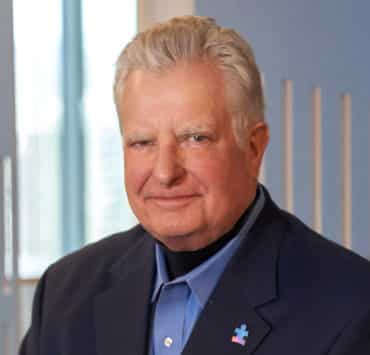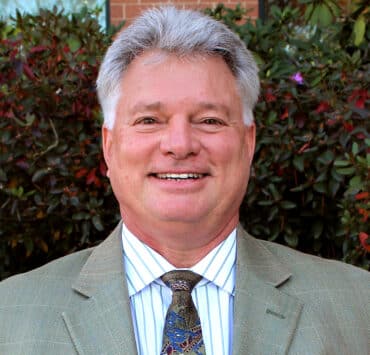|
Getting your Trinity Audio player ready...
|
If given the choice of growing or shrinking, most cities leaders and planners would choose to grow. It’s nice to be in a place where new businesses and people are arriving, and where cool things like modern construction, resilient 21st century design, and cultural institutions are thriving.
Denver is one of those cities. It grew by almost 20 percent between the 2010 and 2020 censuses, and city planners like Evelyn Baker and Jill Jennings Golich are fully immersed in the city-building work that accompanies that population growth.
As deputy directors in the city’s community planning and development department, they work to craft and implement thoughtful city policies that ensure Denver’s evolution aligns with its communities’ values. They have also navigated the exigencies of the pandemic and post-pandemic eras, responding strategically to the needs of a city recovering from a pandemic.

Courtesy of Jill Jennings Golich
During and after the pandemic, their department worked with Denver’s restauranteurs and economic development staff to open sidewalks and streets for restaurant dining. And, together, they have led city staff in creating tools to see downtown office buildings, once full of workers but now largely empty, remade for much-needed housing and thriving, ground-floor retail services.
“We appreciate the City and County of Denver’s vision over the last couple of decades,” says Jason Wallack, Operations Manager at Hensel Phelps. “We feel fortunate to be part of the team, building landmark projects while incorporating workforce and small business programs to support the continued growth of Denver.”
For Baker and Jennings Golich, it’s clear that the human element, the ways in which people work with one another, is a necessary underpinning to sustainable development. In fact, it’s the way they function symbiotically—Baker from the internal staffing and operations side, Jennings Golich on the policy and development functions—that ultimately makes it all work.
Baker’s primary responsibilities include oversight of the department’s culture and customer experience delivered by the 315 staffers who work there. She makes sure the internal workings keep up with the demands of the external stakeholders that Jennings Golich engages with, such as developers, builders, business owners, and residents.

By definition, those constituents have demands. A city’s planning department is often a speed bump, with moments of tension and sometimes conflict. Time is money, and the speed of building can make or break a budget. The planning department staffers work on the front lines and are sometimes subject to those tensions.
But they have a recipe for success. “Our goal is for our customers to have a better experience than what they expect,” Baker says. “We are not soulless bureaucrats. We foster a culture of respect, of listening, of giving people space to be problem-solvers. Our staff know how to interpret complex building codes. They are technicians. And yet, it’s the softer people skills that matter just as much. Respectful communication can go a long way.”
Under Jennings Golich and Baker’s leadership and communication skills, their department worked with thousands of residents and businesses to develop plans that would direct future growth in bold ways to help the community, such as the city-wide “Comprehensive Plan 2040” and “Blueprint Denver,” which takes a holistic approach to land use and transportation.

Blueprint Denver was first conceived in 2002 and updated in 2019, prioritizing complete neighborhoods with their own authentic character, quality-of-life amenities, housing and job options, and high-quality transportation networks. It is a measured approach to new growth and land use decision-making made through the lens of social equity. And, of course, addressing climate change is an important part of those plans.
“Resiliency [to these changes] is critical to staying livable,” Jennings Golich says. “The planning choices we make today will have a profound effect on our carbon emissions and resource use in the future.”
Blueprint Denver offers guidance on this front, directing the bulk of new housing and commercial growth to areas with existing or planned transit connections and emphasizing the build-out of the city’s sidewalks and trails.

Courtesy of Evelyn Baker
Denver is also among only a handful of major US metros that have adopted a green construction code, which Jennings Golich credits partially to the city’s geography. Denver is situated in one of the most solar-friendly climates in the country and has a long history of supporting renewable energy and energy efficiency programs. There is considerable local support for sustainable development practices.
Denver’s position on a high plateau at the base of the Rocky Mountains brings in a lot of people (skiers, snowboarders, cyclists, climbers) and businesses (software and financial services, aerospace, energy and mineral extraction, telecommunications) to the area. Still, Baker and Jennings Golich are aware that the influx of people and money can be disruptive to the people who have lived here for a long time.
Jennings Golich mentions how new affordable housing requirements from their team tie the development of affordable homes to the development of new market-rate homes, ensuring that Denver continues to produce housing options at a range of price points.
Both Jennings Golich and Baker express strong optimism about Denver’s future.
Baker looks back to when she decided to move to Denver. “I came here from San Francisco in 2006,” she says. “I was struck by how it felt Denver was on the verge of maturing into something different, something exciting.”
Almost two decades later, it seems her instincts were right on target.
Founded in 1937, Hensel Phelps specializes in building development, construction, and facility services. As one of the largest employee-owned general contractors in Colorado, Hensel Phelps is driven to deliver excellence in all it does. This vision plus its core values of ownership, integrity, builder, diversity, and community define its culture and guide it as it brings clients’ visions to life. Its comprehensive approach begins with innovative planning and extends throughout the entire life of the property. For more information about Hensel Phelps, visit henselphelps.com.


